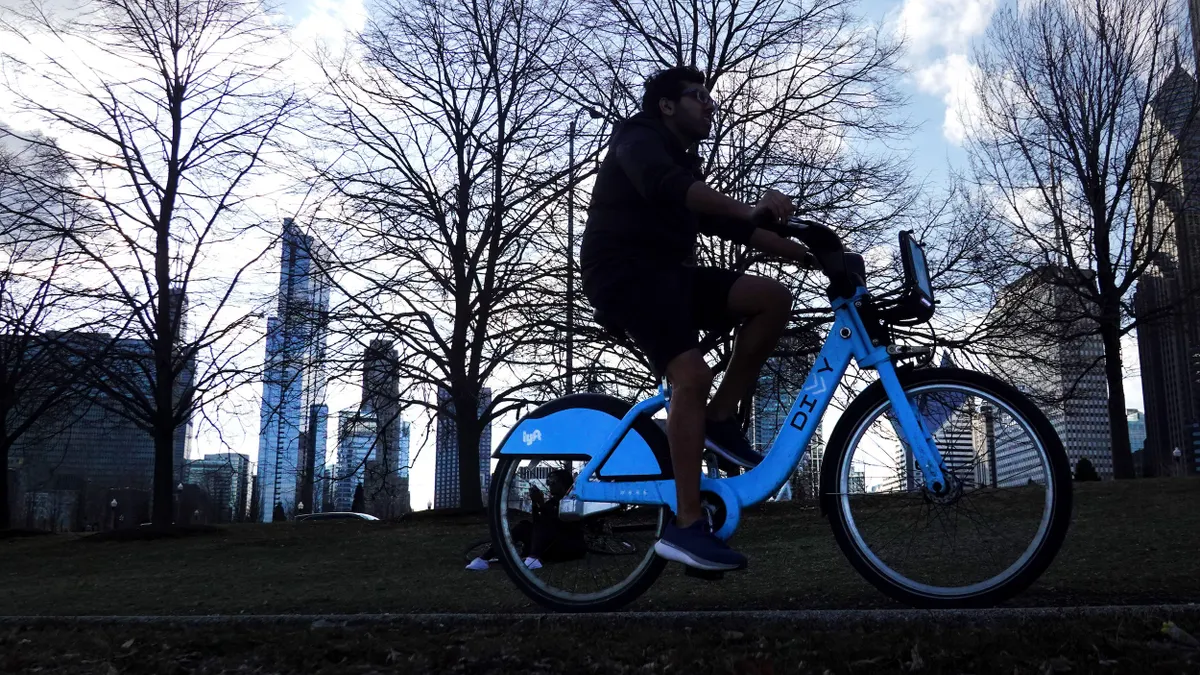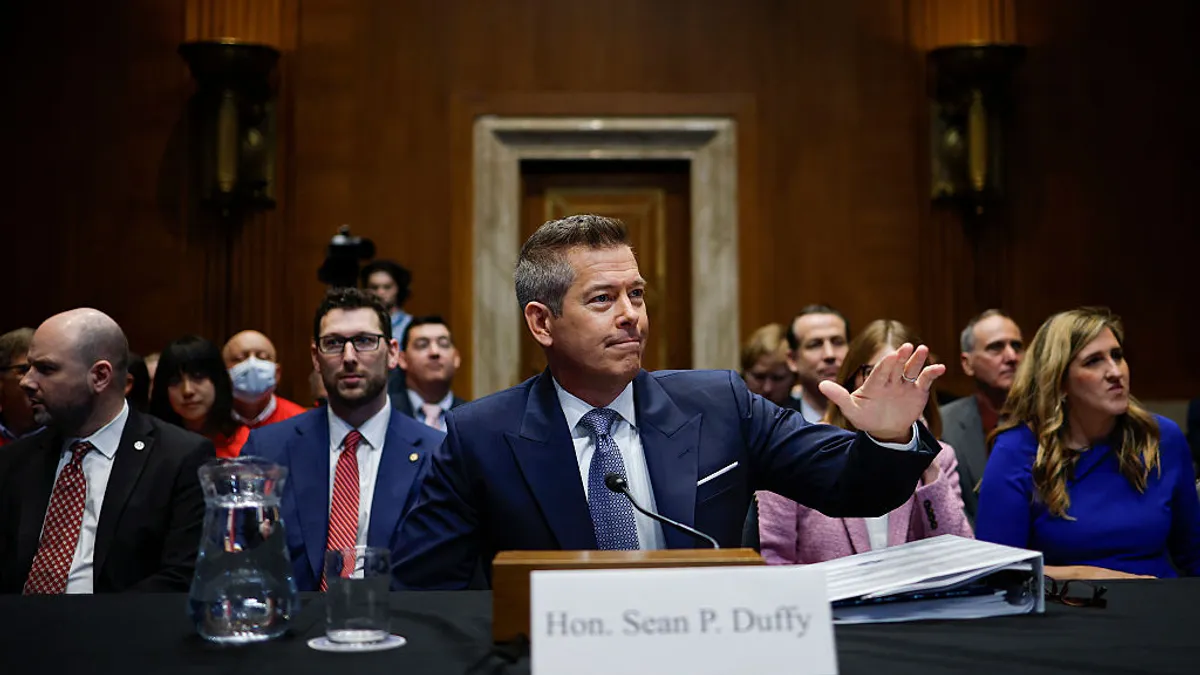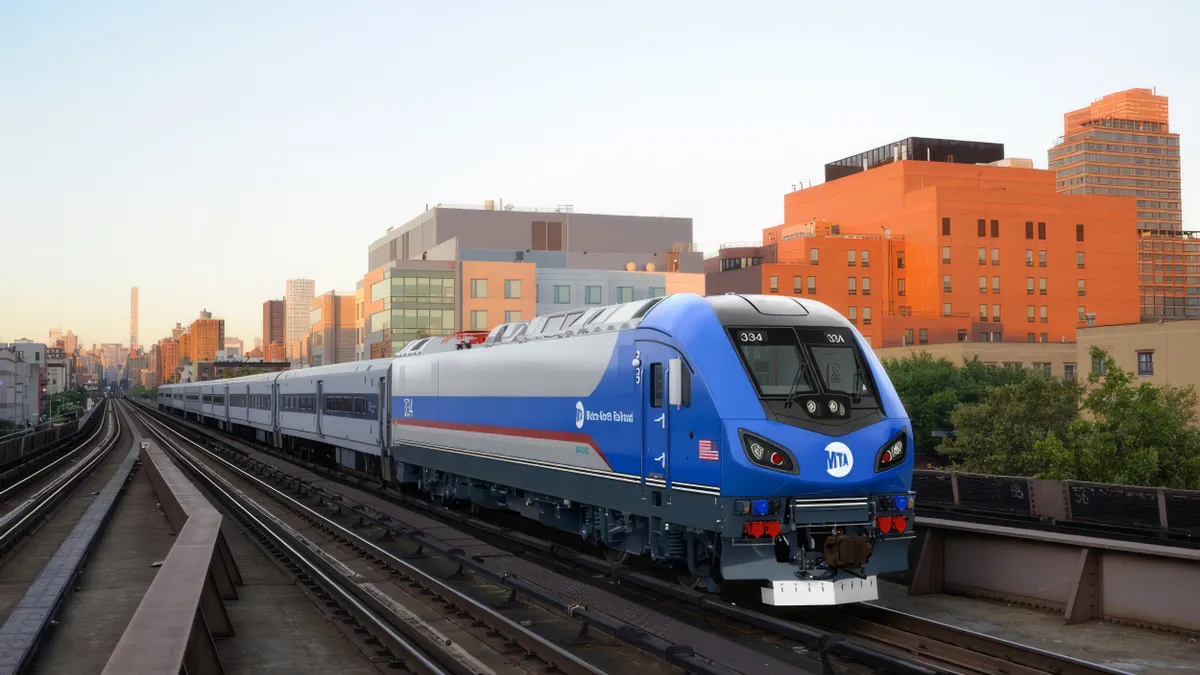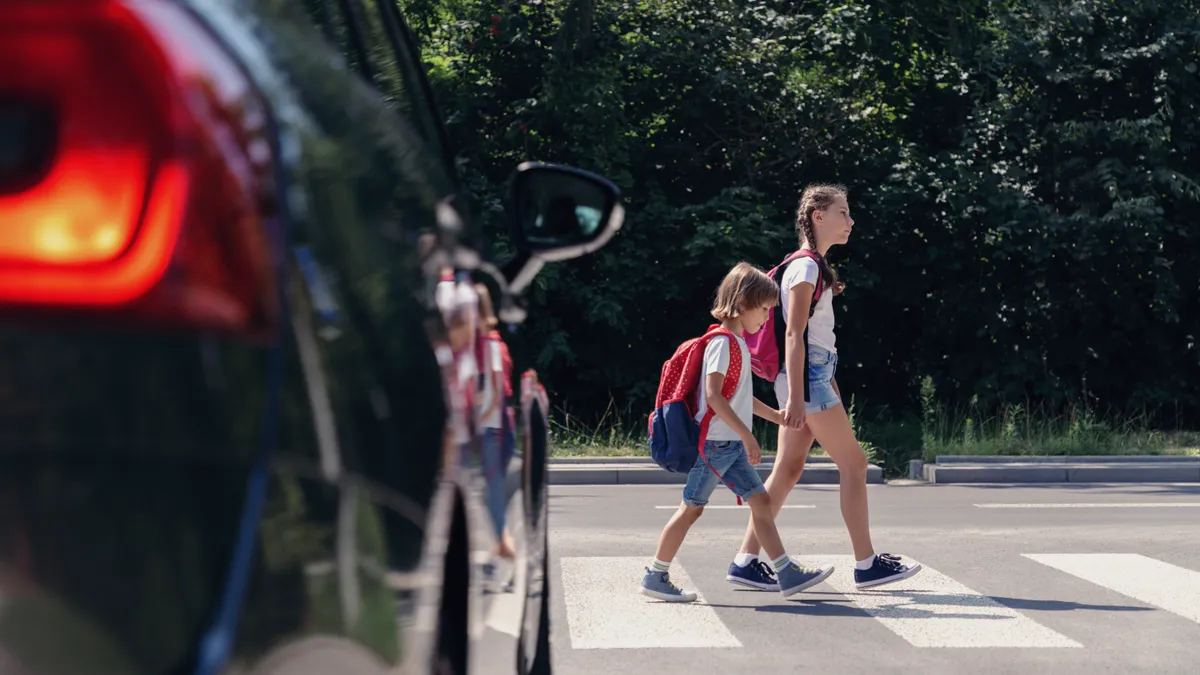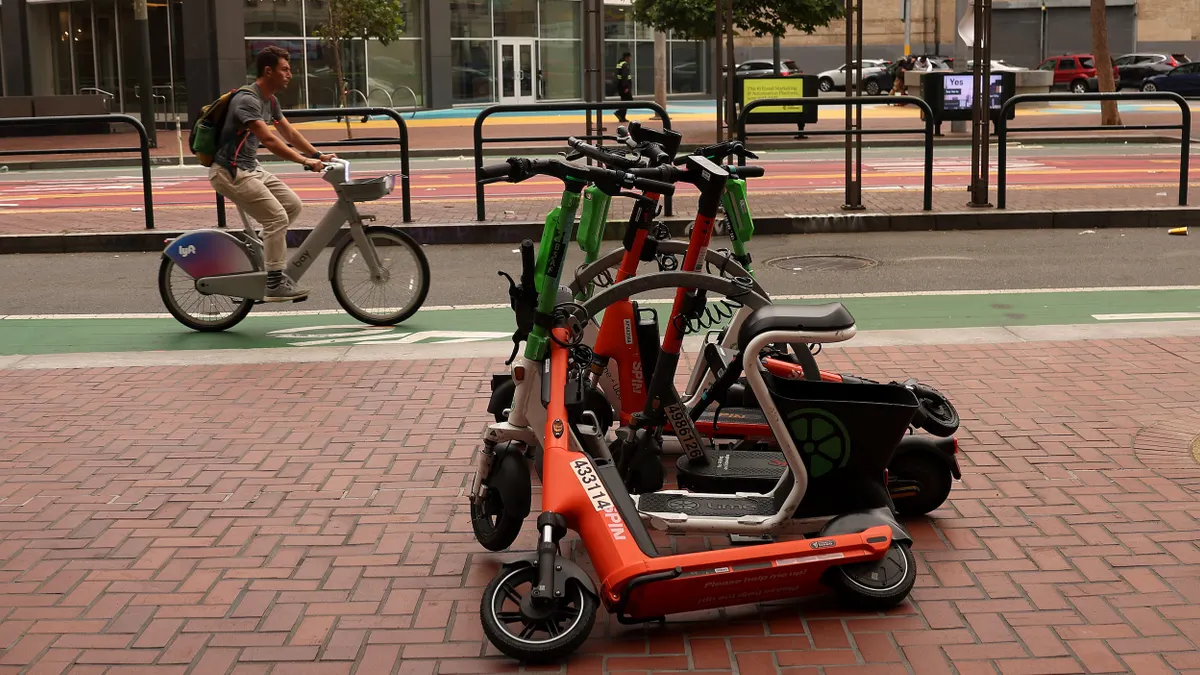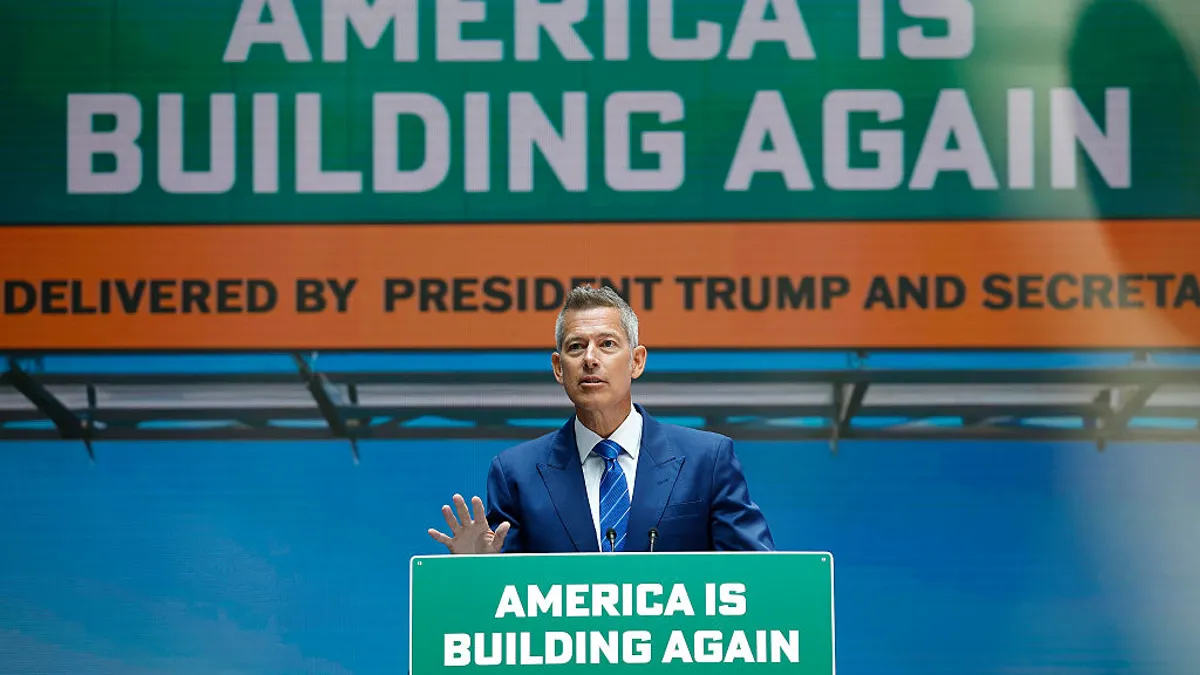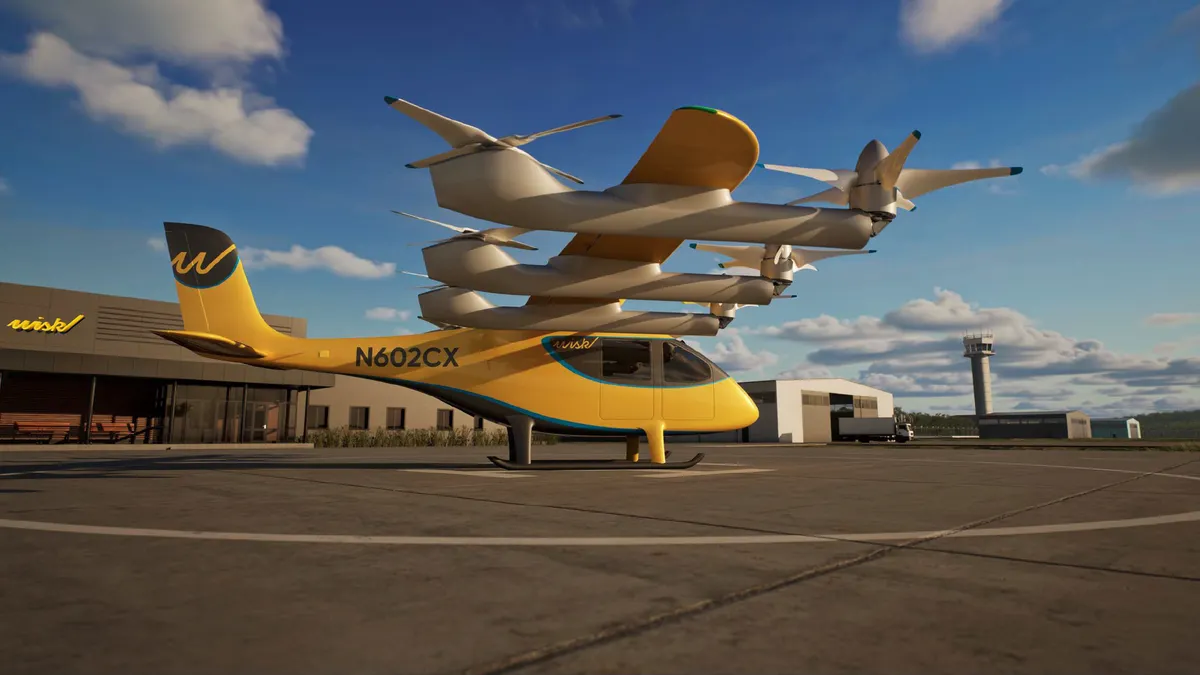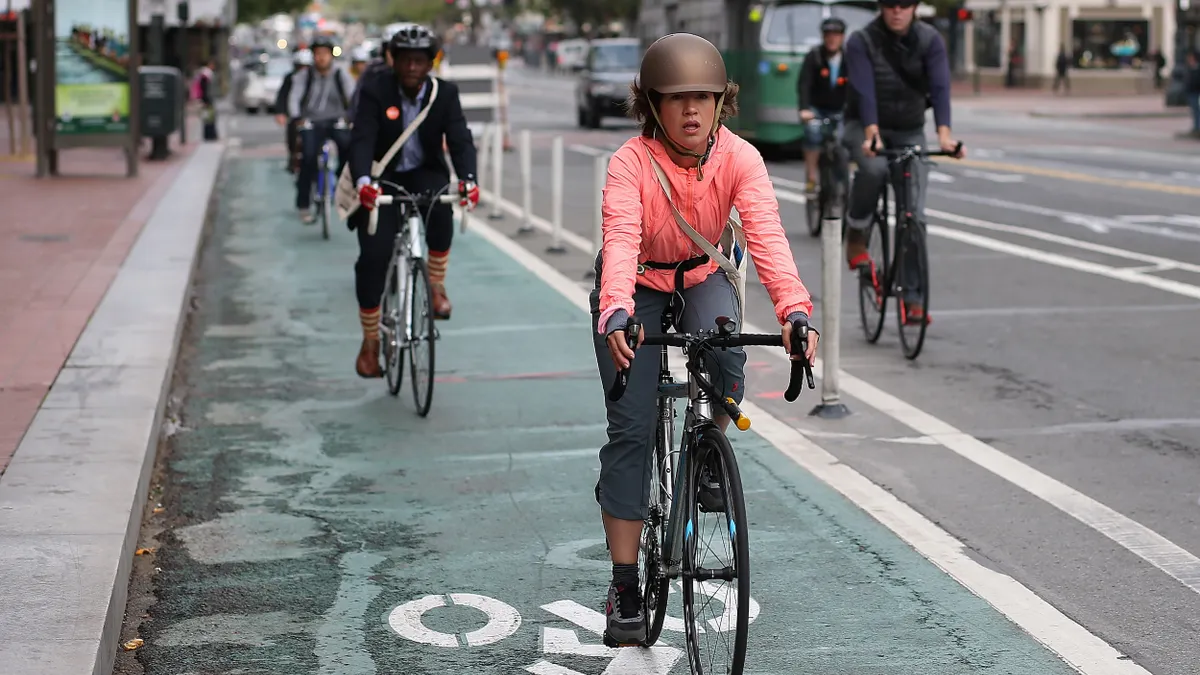The last time Spin co-founder and president Euwyn Poon took a ride on one of his company's e-scooters was a recent trip from his apartment in the East Cut neighborhood of San Francisco to the company’s SoMa office. His 15-minute walking commute is cut down to just a two-minute trip with the vehicle, and thankfully there always seems to be one locked outside his apartment, he said.
Poon’s latest trip illustrates how many urban working professionals are benefiting from the e-scooters that border, and sometimes clutter, city sidewalks.
Spin, which began as a bike-share company in 2017 — debuting with 300 orange traditional pedal bikes at South by Southwest in Austin, TX — has grown into a micromobility company now owned by Ford Smart Mobility after a $100 million purchase in 2018.
Smart Cities Dive caught up with Poon to learn more about the implications of such an investment in the micromobility industry, his vision for the sector's future labor market and why he thinks U.S. cities are falling behind European counterparts.
This interview has been edited for brevity and clarity.
SMART CITIES DIVE: What are the advantages of Spin being owned by an automotive company and not a traditional tech company born out of Silicon Valley?
EUWYN POON: Instead of chasing short term revenue and growth, we are allowed the chance to grow reasonably, sustainably and in pace with the adoption by cities.
One of the big principles that Spin abides by, is that we never launch [in cities] without permission. In fact, we are the folks that are creating most of the regulatory framework and are really working with cities to understand and refine and really broaden these systems.
The second benefit is obviously from being a capital partner. Ford has invested quite a bit in our growth to allow us to scale from our couple dozen folks in only seven markets to 70 markets and counting, including something that we’re tackling this year, which is international expansion.
On the technology front, we are learning from some of the top designers and engineers from Ford in how to design a vehicle — we’re designing our own in-house vehicle to be released on the streets. Learning from an automaker with decades of experience in building world class vehicles that are rugged, reliable and safe has been a wonderful opportunity for us.
What have been the challenges of teaming up with an automotive company?
POON: It’s more learning for us. For example, another big differentiator in our operations is that we primarily rely on full-time and part-time employees on the ground as opposed to ... contractors that Bird and Lime mostly rely on.
There were obviously some learnings from Ford in how to properly manage our labor. With a company that scale, you certainly are always mindful of abiding by the proper labor regulations. But at the same time, we didn't do it just because Ford recommend us to. It fit in with our strategy and we found tremendous benefits by working with W2 employees who are trained and who are loyal. That’s been a big wave driving our growth.
Spin employees voted to join the Teamsters union in December — a first for the scooter industry. How do you think such a workforce could affect the industry at large?
POON: As the industry matures, we were bound to see this happen. Ultimately, we all want to create a sustainable workforce and that’s supported by a sustainable business model. I think that’s a natural byproduct. It's still early days though. It will still be a few quarters or maybe more before this industry stabilizes. We can expect this industry to create a great environment and good opportunity for hundreds if not more people out there to work and be part of this modern urban infrastructure.
You had mentioned that U.S. cities are behind European cities in micromobility. Why do you think that is?
POON: If we look at Europe, the cities have been traditionally built around biking.
We're seeing progress in American cities. European cities emerged and grew up in a different century than American cities that were built around the usage of cars. It's an artifact of timing in a way that the popularity of cars, which are great for certain instances and use cases — mainly the drive from the suburb to the city — not necessarily within the city itself.
It doesn’t make sense for a crowded city center to be jammed full of cars that are holding one passenger when a tiny little scooter, which generates less emissions and is lighter, can be used instead.
Can U.S. cities catch up to European cities?
POON: Yes, with the right effort. The first step is adopting micromobility. Over the last few decades, I think we've seen a lot of interest and a lot of time and a lot of ideas into how cities can be made better for people.
What it’s truly lacking is more adoption, and with more adoption comes more attention, more funding and more change. That’s exactly what’s happening with micromobility. This form of transport has been so popular that it has literally created one of fastest growing industries of all time between us, Bird and Lime. And with that comes usage and jobs and real demand in cities and building teams of experts that are now working with cities to design the policy framework that will allow these scooters in the street.
The next step is: How do we build infrastructure around it? I think it will take a while. But we’ll see major changes in cities to accommodate this form of modern transport.
When scooter companies first entered cities, they often disregarded local regulations, though there’s been improvements in the ways scooter companies and cities work together. What new tensions do you predict will crop up as scooter companies mature?
POON: The next phase will be: How do we scale up these programs? We're still at a relatively small scale with the initial last round of [operating] permits in the last year or two that have been designed by the cities. In the next year or two, we’ll be working with cities to try to scale up these programs to match real consumer demand. And ideally it's not really a tension but rather a cooperation and shared understanding [between] the real demand… and the needs of other folks in the cities not having the streets clogged up with scooters.







